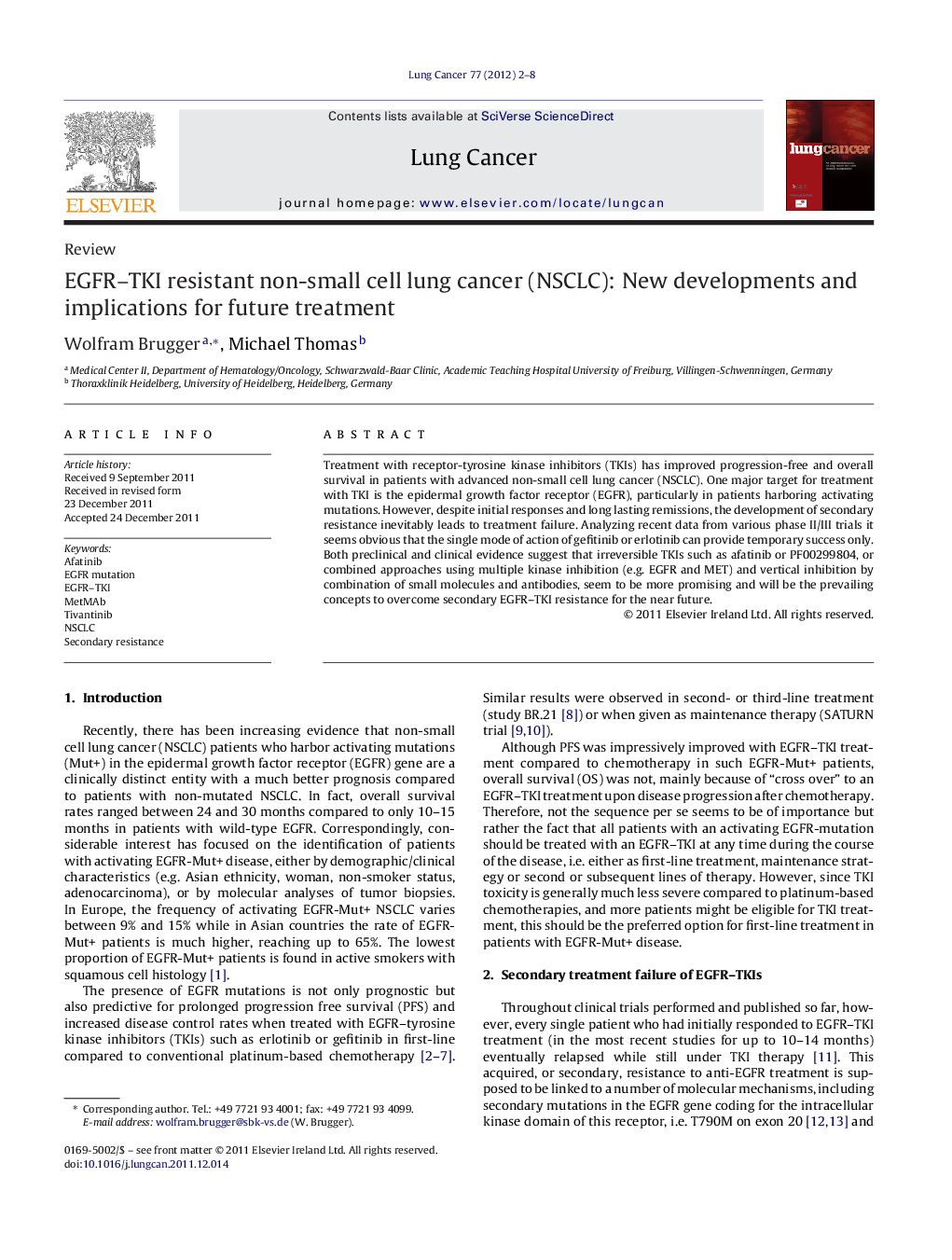| Article ID | Journal | Published Year | Pages | File Type |
|---|---|---|---|---|
| 2142150 | Lung Cancer | 2012 | 7 Pages |
Treatment with receptor-tyrosine kinase inhibitors (TKIs) has improved progression-free and overall survival in patients with advanced non-small cell lung cancer (NSCLC). One major target for treatment with TKI is the epidermal growth factor receptor (EGFR), particularly in patients harboring activating mutations. However, despite initial responses and long lasting remissions, the development of secondary resistance inevitably leads to treatment failure. Analyzing recent data from various phase II/III trials it seems obvious that the single mode of action of gefitinib or erlotinib can provide temporary success only. Both preclinical and clinical evidence suggest that irreversible TKIs such as afatinib or PF00299804, or combined approaches using multiple kinase inhibition (e.g. EGFR and MET) and vertical inhibition by combination of small molecules and antibodies, seem to be more promising and will be the prevailing concepts to overcome secondary EGFR–TKI resistance for the near future.
